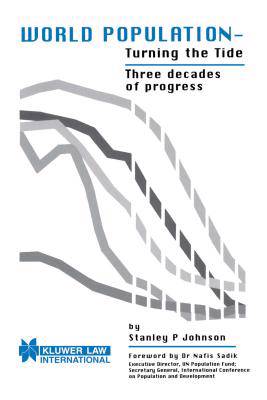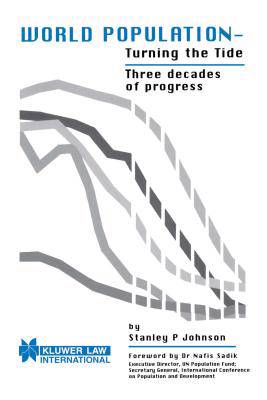
- Afhalen na 1 uur in een winkel met voorraad
- Gratis thuislevering in België vanaf € 30
- Ruim aanbod met 7 miljoen producten
- Afhalen na 1 uur in een winkel met voorraad
- Gratis thuislevering in België vanaf € 30
- Ruim aanbod met 7 miljoen producten
Zoeken
World Population - Turning the Tide
Three decades of progress
Stanley Johnson, Johnson
Paperback | Engels
€ 121,95
+ 243 punten
Omschrijving
This book recounts the successful story of national and international approaches to the population question since the 1960s to the present and of the progress made in reducing rapid rates of population growth and high levels of fertility. It describes the evolution of national population policies by governments, their aims, successes and shortcomings, and subsequently of the emergence of international agencies seeking to reinforce and underpin those commitments. This study draws heavily on documents and sources, and carefully assesses the achievements of the 1974 Bucharest World Population Conference, the 1984 International Conference on Population in Mexico and the several major national and international initiatives that followed them, up to the 1992 UN Conference on Environment and Development, in Rio. It examines the prospects for a new international consensus in population, and the preparation for the International Conference on Population and Development in Cairo in 1994. The text is excellently supplemented with valuable annex materials.
Specificaties
Betrokkenen
- Auteur(s):
- Uitgeverij:
Inhoud
- Aantal bladzijden:
- 368
- Taal:
- Engels
Eigenschappen
- Productcode (EAN):
- 9781859660478
- Verschijningsdatum:
- 5/08/1994
- Uitvoering:
- Paperback
- Formaat:
- Trade paperback (VS)
- Afmetingen:
- 156 mm x 234 mm
- Gewicht:
- 566 g

Alleen bij Standaard Boekhandel
+ 243 punten op je klantenkaart van Standaard Boekhandel
Beoordelingen
We publiceren alleen reviews die voldoen aan de voorwaarden voor reviews. Bekijk onze voorwaarden voor reviews.








